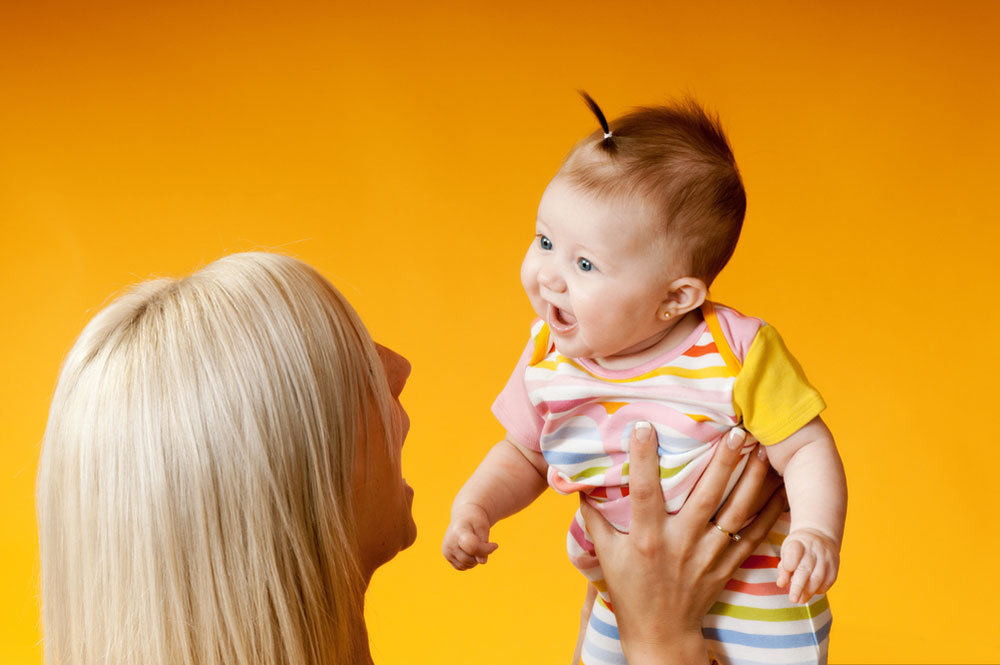Babies Picky About Who They Imitate

Babies are famous for copying adults, but a new study shows that little ones carefully choose whether to imitate an adult's actions based on how credible they think the adult is.
For example, if an adult has previously displayed unreliable or dishonest behavior, the baby is less likely to mimic them, according to the study.
Researchers divided 60 babies between 13 months and 16 months into two groups. In the first group, "unreliable" experimenters looked inside a container while expressing excitement, and invited the babies to discover whether the box contained a toy or was empty. For that group's experiment, the box was empty. The second group had "reliable" experimenters, so when the babies copied the adults' enthusiastic behavior and looked inside the box, they found a toy.
In a second imitation task, each baby again observed the same experimenter that they had looked at during the box exercise. This time, the adult used her forehead instead of her hands to turn on a push-on light. The experimenter then watched to see whether the infant would copy her behavior.
The results showed that 61 percent of the infants in the "reliable" group imitated the irrational behavior of using their foreheads to turn on the light. By contrast, 34 percent of infants imitated the unreliable testers who had previously deceived them during the box task.
"This shows infants will imitate behavior from a reliable adult," study researcher Ivy Brooker of the Concordia Department of Psychology said in a statement. "In contrast, the same behavior performed by an unreliable adult is interpreted as irrational or inefficient, therefore not worth imitating."
The findings are consistent with previous studies from the same laboratory that suggest babies are adept at detecting an adult's reliability based on their previous behavior. In 2007 Yale University researchers found that 10-month-olds and 6-month-olds are capable of judging a person's character and using that information to decide whom they'd prefer to hang out with.
Sign up for the Live Science daily newsletter now
Get the world’s most fascinating discoveries delivered straight to your inbox.
"Like older children, infants keep track of an individual's history of being accurate or inaccurate and use this information to guide their subsequent learning," said study researcher Diane Poulin-Dubois, a professor in the Concordia Department of Psychology and member of the university's Centre for Research in Human Development. "Specifically, infants choose not to learn from someone who they perceive as unreliable."
The study was published in the April 2011 issue of the journal Infant Behavior and Development.
You can follow LiveScience writer Remy Melina on Twitter @remymelina. Follow LiveScience for the latest in science news and discoveries on Twitter @livescience and on Facebook.









